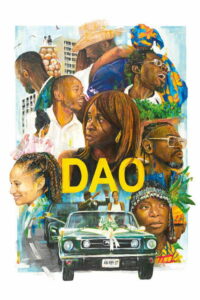Last updated on September 6, 2024
A film by Wang Bing
Wang Bing concludes his monumental Youth trilogy in expansive fashion, giving ever wider scope to the lives of migrant workers in Zhili’s textile factories as they plan to go to their remote hometowns to visit their families and celebrate the festivities for New Year’s break.
Our rate: **
Like his previous opus presented at Cannes, Wang Bing proves, if proof were needed, that he possesses an unparalleled talent for producing gripping documents. Here again, he paints a portrait of young people, representative of an entire country, and in so doing, captures unfathomable truths, proposing a veritable journey into his country – which he even materializes on screen by following a couple on a train and then on a bus in the Yunan mountains; His gaze is totally self-effacing (no interaction between the protagonists and the cameraman, no effects that make the cameraman visible), but paradoxically asserts itself in the editing (a remarkable job of archiving and relating). Once again, Wang Bing relates living conditions as a starting point, and a way of life chosen to adapt to them. Unlike the highly collective portrait delivered by the Cannes opus (Youth, Spring), this Venetian opus focuses on a much smaller number of people, and deliberately limits group interactions. Rather than a single, generalized portrait of China’s provincial, underprivileged youth, he offers us a sampling of portraits with obvious similarities. He also chooses to refocus on married life (marriages, the search for work as a couple), but also on provincial tradition, since here the documentary focuses on the return of young people to their region of origin, offering a striking geographical tour in the process, and some reflections so specific to Chinese politics (the single child, …). Yesterday’s China, still attached to its traditions (Chinese New Year celebrations, wedding ceremonies, etc.), on the bangs of today’s big-city China, as seen through the eyes of young people, probably foreshadows tomorrow’s China.










Be First to Comment